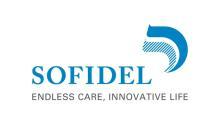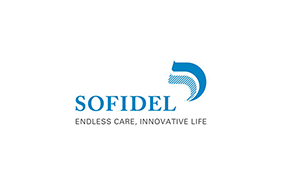Sofidel: Go Green When You Clean
Published 09-13-23
Submitted by Sofidel

By: Mark Kirchgasser, Vice President of Sales – Away from Home, Sofidel America
A new season is almost here, which means it’s time to refresh your facility’s cleaning program. Finding new ways to implement sustainable hygiene practices can help benefit your facility as well as the planet.
The public is continuing to become more conscious about the brands they purchase from and prefer facilities that prioritize sustainability, it’s now more important than ever that facility managers address their current sustainable practices. Along with incorporating sustainable practices, occupants also prefer facilities that prioritize health and safety through hygienic practices.
Go Touch-Free
When people are out on the go, they want a safe and clean place to go. Providing restrooms that prioritize sustainability and hygiene practices can help improve customer satisfaction. A study found that there are up to 229,000 germs per square inch on high-touch surfaces in restrooms such as handles of frequently used faucets, as well as 83 bacteria per square inch on flush handles. Switching to touch-free appliances such as automatic toilets, faucets and soap and paper towel dispensers is a great way to reduce touchpoints that can allow bacteria to transfer.
This also provides a sustainable alternative as many manufacturers supply soap and paper towels for touchless appliances in bulk. Research has found that 20 companies are the source of 55% of the world's single-use plastic waste, while the world’s top 100 companies account for more than 90%. Switching to touch-free appliances eliminates the need for plastic soap pumps which reduces the amount of single-use plastic as well as the carbon footprint of frequent product shipment and delivery.
Reevaluate Cleaning Chemicals
Most commonly used cleaning products contain hazardous chemicals that can damage the environment and end users as well as building occupants. Sustainable cleaning products are made with ingredients that contain less harsh chemicals and safer ingredients, resulting in a truly cleaner facility. Green cleaning products have also been proven to improve air quality within facilities as they don’t emit pollutants into the air that are found in common cleaning products.
Hiring professionals to clean your facility allows them to restock hygiene products on a routine basis and saves your employees time. This helps ensures hygiene measures are being met while also reducing the need to frequently re-purchase plastic cleaning supplies, which can be costly and take up inventory space. This results in a regularly maintained facility while benefiting your business and the environment.
Be Transparent
It’s important to be transparent with your customers when reporting your business’ sustainability and cleanliness tactics. With the presence of digital technology, companies can be exposed to bending the truth, or even flat-out deceiving customers. This can result in a negative impression that can be difficult to recover from. Consumers value business transparency now more than ever. Eighty five percent of consumers say a business’ history of being transparent makes them more likely to give it a second chance after a bad experience.
This doesn’t mean that businesses can’t benefit from acknowledging their mistakes. Transparency allows the opportunity to make changes that improve business and exceed customers’ preferences. Share how your business plans to make sustainable changes whether it’s product ingredients, manufacturing processes or packaging and shipment procedures. Transparency allows for business growth that shows customers they are valued.
Set Your Standards
Consumers aren’t the only ones who prefer a sustainably focused facility. Nearly 80% of employees find sustainable practices in the workplace to be an important focus. When it comes to cleanliness, a clean workplace has been linked to higher office morale and increased productivity. If your facility has a designated cleaning staff, providing routine training sessions will ensure they are up to date on cleaning standards, using equipment and green cleaning products properly and are exceeding your facility’s cleaning standards.
Facility managers can also implement small sustainable efforts in the workplace such as recycling bins, reusable utensils in the office kitchen, utilizing digital documents over paper documents and encouraging employees to unplug electronics when they’re not in use. Offering sustainable alternatives promotes a healthy work environment that reflects positively on employees and the company’s image.
Protect Your Facility and the Planet
Prioritizing the health of occupants who enter your facility while also finding ways to better the planet benefits businesses by showing social responsibility. Implementing changes, big or small, can create a positive impact that shows customers that businesses are paying attention to them and are striving to make a difference in their communities.
Author Bio
Mark Kirchgasser is Vice President of Sales –Away from Home, at Sofidel America. He is a 30-year veteran of the tissue industry. Sofidel is a world leader in the manufacture of paper for hygienic and domestic use, including its Papernet brand of sustainable hygiene solutions. For more information, visit www.papernet.com/am
About The Sofidel Group
The Sofidel Group, a privately held company owned by the Stefani and Lazzareschi families, is a world leader in the manufacture of paper for hygienic and domestic use. Founded in 1966, the Group has subsidiaries in 12 countries – Italy, Spain, the UK, France, Belgium, Germany, Sweden, Poland, Hungary, Greece, Romania, and the USA - with more than 6,400 employees. A member of the UN Global Compact and the international WWF Climate Savers program, the Sofidel Group considers sustainability a strategic imperative and is committed to promoting sustainable development. For more information, visit www.sofidel.com.
Media Contact:
Brianna Fitzpatrick
Mulberry Marketing Communications

Sofidel
Sofidel
The Sofidel Group is one of the leading manufacturers of paper for hygienic and domestic use worldwide. Established in 1966, the Group has subsidiaries in 13 countries – Italy, Spain, the UK, Ireland, France, Belgium, Germany, Sweden, Poland, Hungary, Greece, Romania and the USA – with more than 6,000 employees, net sales of 2,095 million Euros (2021) and a production capacity of over one million tonnes per year (1,440,000 tonnes in 2021). “Regina”, its most well-known brand, is present on almost all the reference markets. Other brands include: Softis, Le Trèfle, Sopalin, KittenSoft, Nalys, Cosynel, Lycke, Nicky, Papernet. A member of the UN Global Compact and the international WWF Climate Savers programme, the Sofidel Group considers sustainability a strategic factor with regards to growth and is committed to reducing its impact on natural capital and maximising social benefits, setting as objective the creation of shared added value for all stakeholders. Sofidel’s greenhouse gas (GHG) emissions reduction targets to 2030 have been approved by the Science Based Targets initiative (SBTi) as consistent with reductions required to keep warming to well-below 2°C, in line with the goals of the Paris Agreement.
More from Sofidel

